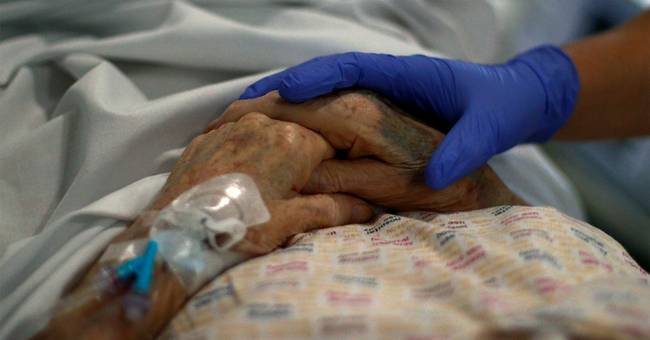When researchers say doubled risk, and 70 percent increased morbidity, it directly reaches the front pages of the news.
This is also the case with the study from Scotland on the new delta variant, which was recently published.
But if you look at the numbers in the study, it is still about small numbers and a doubling from a very low level.
The researchers behind the study have examined the more than 19,000 new corona cases registered in the area during April and May this year.
Of these, 377 people needed to be hospitalized.
Just under half of the inpatients, 134 people, wore the new delta variant.
Based on that figure, 134 people, it has since been calculated that the need for hospital care is twice as great for those infected with delta.
Gained a foothold among younger people
It is thus a small basis and the uncertainty surrounding the conclusions is therefore still great.
The study also shows that almost only the unvaccinated are infected with the delta variant.
Although the vaccine is slightly less effective, it still provides between 60-79 percent protection against the delta variant, provided that two syringes have been taken.
It is mainly among younger people that the delta variant has now gained a foothold, precisely because these groups are still unvaccinated even in the UK.
Adults have also been infected with the delta variant, but this is because there is still a large group of people in Scotland who are not yet fully vaccinated.
By June, just under 40 percent of the adult population had received two injections.
More dangerous mutations
But there is another worrying factor with the rapid spread of the delta variant: A mutation that takes hold can in turn lead to more mutations that lead to even more mutations.
Bit by bit, new virus variants can be developed that take us further and further away from the original variants that the vaccine we have today has been developed to protect us against.
I call the virologist Niklas Arnberg at the University of Umeå, and reach him in the middle of his work to develop medicines for the coronavirus.
He thinks there is reason for concern about the delta variant: If we do not succeed in slowing down the spread of the delta, there is a risk that eventually there will be new variants that today's vaccine does not actually bite.
Then we would be back on square zero again, says Arnberg.
"Vaccines still effective"
Virologist Ali Mirazimi, who is working on developing new coronavina vaccines, agrees that the risk of delta is that it paves the way for new mutations.
However, he believes that the virus will not succeed in mutating so strongly that the vaccines will be completely ineffective, even if the effect deteriorates somewhat.
Tomorrow, the Swedish Public Health Agency will present new information on how the delta variant has spread in Sweden.
In the UK, where Delta has taken over completely, authorities have decided to pause the easing of restrictions.
The question we must be able to decide on now is whether it is really the right time to ease so much more on the restrictions here at home in Sweden when we know that the delta variant is on the rise here as well.
It is necessary to stop the spread of the delta of the variant.
To succeed, vaccinations must be continued and completed.
Until we are fully vaccinated, we should do what we know we should do.
Keep your distance and wash your hands.

